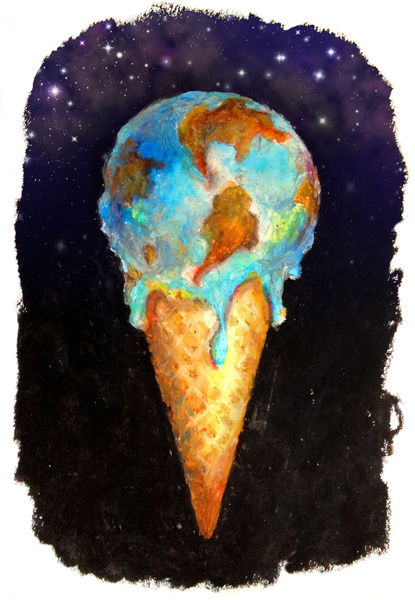 A muted environment this late Saturday afternoon here on California’s north coast, though, just the ambience of storm clouds a-coming — supposedly, a fairly-decent rainstorm starting later this evening, maybe continuing all-day tomorrow, and could stay-steady until Monday.
A muted environment this late Saturday afternoon here on California’s north coast, though, just the ambience of storm clouds a-coming — supposedly, a fairly-decent rainstorm starting later this evening, maybe continuing all-day tomorrow, and could stay-steady until Monday.
Along the shoreline, we’ll have to wait and see…
Weather is mostly-predictable to a point, with a wide range of final results, and sometimes completely wrong. Add warming temperatures to the mix, and you get unpredictability, and extremes.
Last Thursday, the American Meteorological Society released a new report confirming what’s occurring with our environment — via the Independent Mail:
New scientific analysis shows the fingerprints of man-made climate change on 14 extreme weather events in 2014, hitting every continent but Antarctica.
(Illustration above found here).
In keeping tabs on the on-going, seemingly-endless science research published just about every day, and while going outside every-once-in-awhile, I’ve reached the conclusion global warming is some bad, ugly shit, yet only to get worse. Prior to 2007, climate change wasn’t on my radar at all — for instance, didn’t even register a sub-plot for the film, “The American President” (1995), was about climate change until re-watching nearly a decade later — but the warnings have been public for 50 years.
In 1965, a group of climate scientists presented LBJ with a remarkable report (via Grist):
The climate scientists of 1965 were eerily prescient.
“Through his worldwide industrial civilization,” the report read, “Man is unwittingly conducting a vast geophysical experiment. Within a few generations he is burning the fossil fuels that slowly accumulated in the earth over the past 500 million years … The climatic changes that may be produced by the increased CO2 content could be deleterious from the point of view of human beings.
“The possibilities of deliberately bringing about countervailing climatic changes therefore need to be thoroughly explored.”
Of course, nothing happened — until now, when the shit is about to really hit the fan.
Last week’s AMS report focused on events from 2014, as researchers from 20 countries examined extreme weather and climate events from all seven continents — noteworthy for Americans, and for the future, from science writer Bob Henson at WunderBlog:
For those most interested in U.S. weather, the report has plenty to chew on, including coverage of 2014’s burst of hurricane activity near Hawaii; the year’s drought-stoked wildfire season in California; the active winter storm track across much of North America in 2013-14; that winter’s Midwestern cold; and the chilly conditions that prevailed over much of the East.
Strikingly, each of these events recurred to at least some extent in 2015.
This is itself a fascinating phenomenon, one that goes unaddressed in the report — but that’s understandable, given that the report’s mandate is to focus on one year at a time.
Henson also makes mention in context of reality:
In a press packet released on Thursday, lead editor Stephanie Herring (NOAA National Centers for Environmental Information) emphasized one crucial caveat: the absence of a clear climate-change influence in any particular study doesn’t prove that no influence exists.
“Any of the following could explain the absence of a signal: there was no human influence on the event; the particular factors investigated were not influenced by human-caused climate change; [or] the human influence could not be identified with the scientific tools available today.”
In context, best description of climate change’s influence on our weather, and about everything, is boiled-down to just one word, “exacerbate” — ‘verb (used with object)…to increase the severity, bitterness, or violence of (disease, ill feeling, etc.); aggravate.’
And real-scary — brainacs don’t really know how this shit is going to play out…